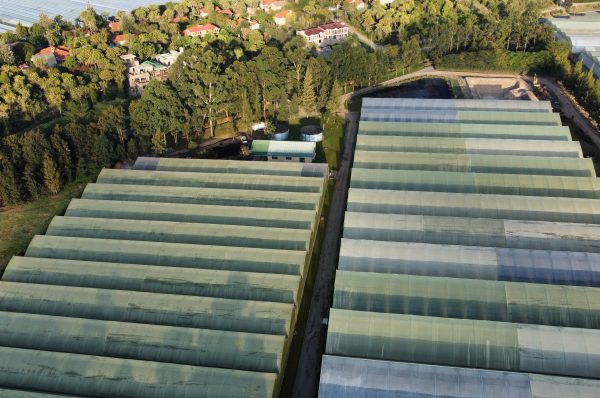
Sustainability at Kreative Roses
Sustainability Goals
Our company consistently pursues sustainable goals to ensure environmentally friendly cultivation and production of our roses. By implementing ecological cultivation methods and applying new technologies, we strive to minimize the environmental impact of our activities and be a pioneer for sustainability in the rose industry.
“Natural elegance through sustainable breeding: Our roses tell a Green Story!”
Water
Rainwater Harvesting
The roofs of our greenhouses make it possible to collect rainwater. This is done by rain gutters that are connected to the roofs. With the help of underground pipes, the rainwater is collected in large collection basins. Rainwater collection enables us to cover 40% percent of our annual irrigation requirements.
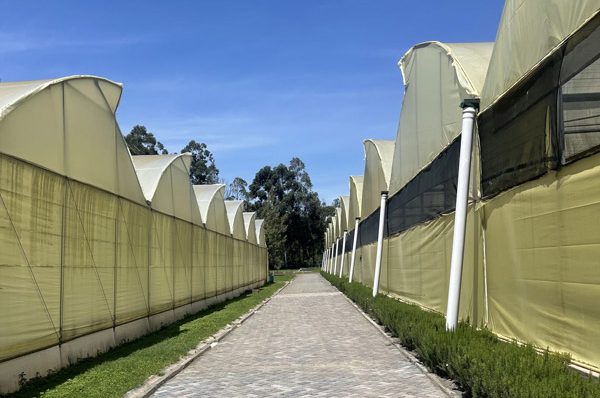
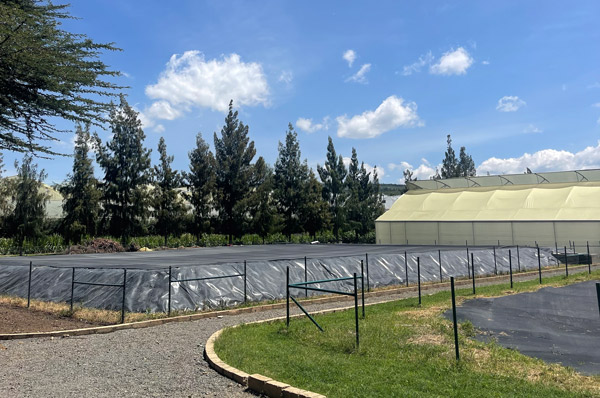
Water Storage
Rainwater Storage
In total, we have two large rainwater reservoirs that collect all the water from the greenhouse roofs. These two basins, with a volume of 6 million litres, allow us to irrigate 20 weeks without the use of borehole water.
Recycling
Drain Water Recycling
With our new UF filter system, we can filter and reuse fertilized water already used in our rose selection department. We call this process “water recycling”. To do this, the water passes through a system with sand and mesh filters before it enters the UF filter. Ultrafiltration is physical filtration of water that passes through a 20-nanometre membrane within the system. This allows bacteria, most viruses and microplastics to be filtered out of the water. In addition, the residual fertilizer contained in the water is preserved. Every day, 22,000 litres of water is filtered in this way. The end-product is collected in one of our fertilizer tanks and mixed with new fertilizer, which is used for our test house. The filtered water makes up 40% of the water for the test house.
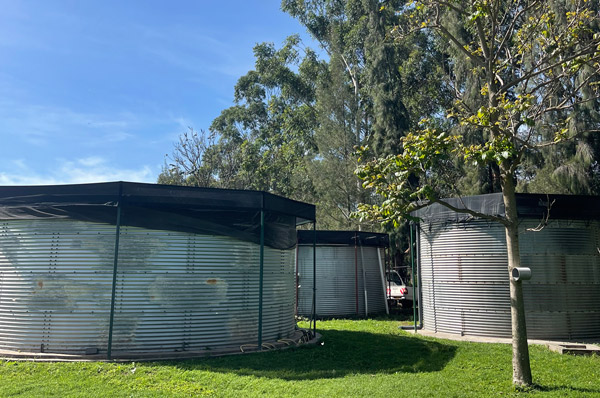
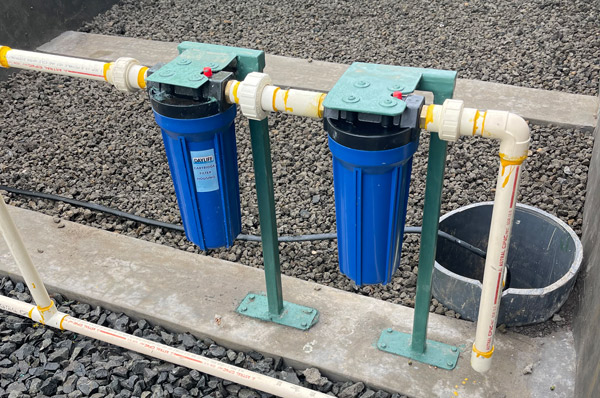
Treatment
Wastewater Treatment
There are guidelines for the correct disposal of wastewater in Kenya. Due to the requirements of WARMA (Water Resources Management Authority), agricultural farms are increasing monitored to ensure that they comply with the national effluent guidelines. For this reason, the wastewater filtration system on our farm was upgraded. The water passes through a three-part filter system. First, volcanic stones (pumice) absorb 90% of the dissolved solids from the water. In the second step, the pre-filtered water passes through a filter with activated carbon, which also filters 90% of fertilizer, pest and pathogenic bacteria out of the water. Finally, the effluent is then put into a soak-away pit and this is tested regularly by WARMA to confirm that it meets National and WHO standards.
Crops
Bio Crop protection Management
Plant protection in the agricultural sector has come under increasing pressure in recent years, due to the use of chemical pesticides and we believe that this activity can become more sustainable. Therefore, Kreative Roses switched to the use of biological pesticides in their operation several years ago. Presently, the farm only resorts to the use of chemical pesticides in extreme emergencies, such as intensive infestation by insects or fungi. In practice, careful use of chemical pesticides has proven to be more effective than biological pesticides in eradicating pests. Through intensive scouting techniques, we work towards minimizing the need for the application of chemical agents.
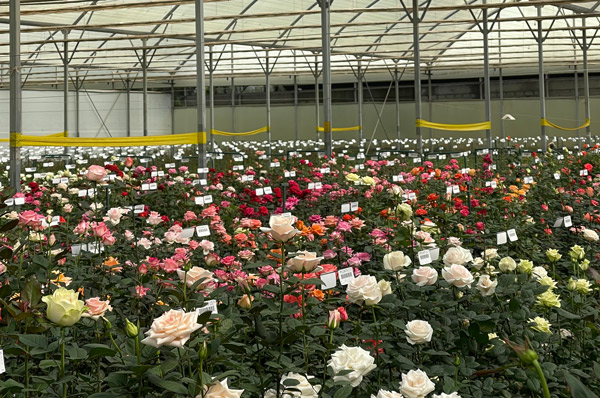
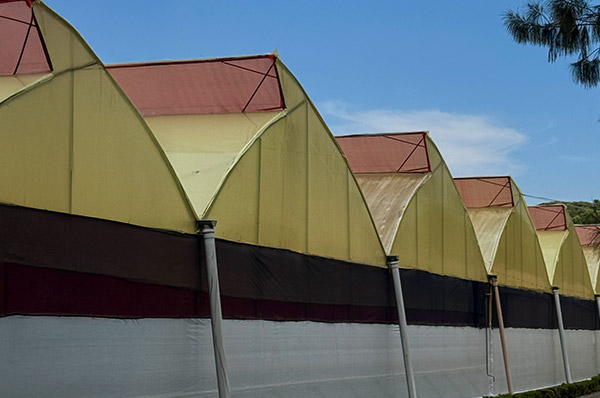
Pests
Insect infestation protection
Insects are a major factor negatively influencing production in the rose sector. In a continuous effort to improve environmental sustainability of our operations, new, environmentally friendly measures against insects must be researched and applied. Therefore, red nets will be installed at our farm in June 2024. Research has shown that these fine red nets serve as a natural “stop“ sign for insects that want to enter the greenhouse. The red nets will be attached to the roof and side openings of the greenhouses to reduce, for example, thrips infestation. This natural and biological plant protection measure further reduces the use of chemical agents.
Compost
Compost Production
At our rose farm, all rose plant waste is turned into compost within 6 months. This compost is regularly added to our soil to the maintain organic matter content. Due to the higher temperatures in Kenya, the mineralization rate in soil is higher than in temperate countries. This means that new organic material must be added to the soil more often to maintain the 3 to 8 percent target of organic matter content in the soil.
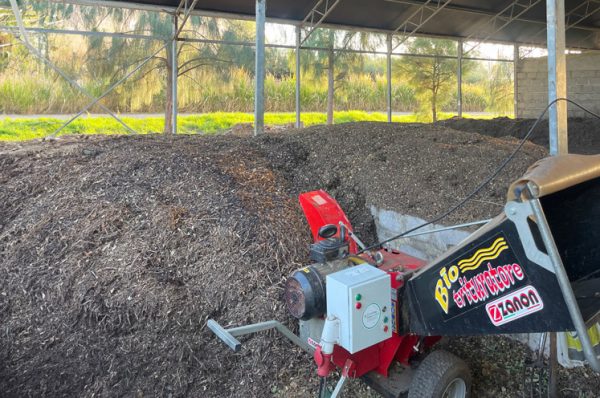
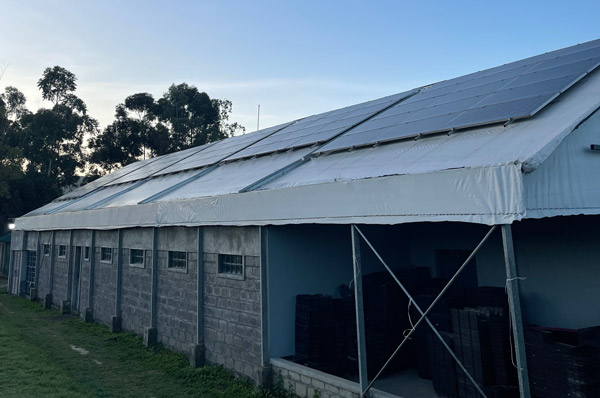
Renewable Energy
Solar Power Generation
In 2022, we invested in the installation of a solar energy system on some of our buildings. This is a 50-kilowatt solar system. This allows the rose farm to produce its own electricity throughout the day. Currently, solar energy covers 30% of our daily electricity needs, which makes us less dependent on generators for electricity. By 2026, we aim to have most of the company’s roofs covered with solar panels so that 50% of our electricity needs will be covered by solar power.
